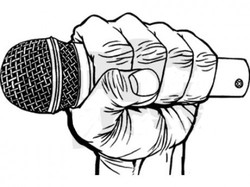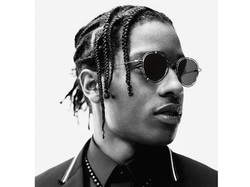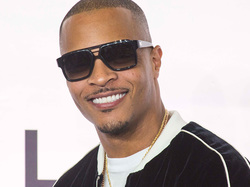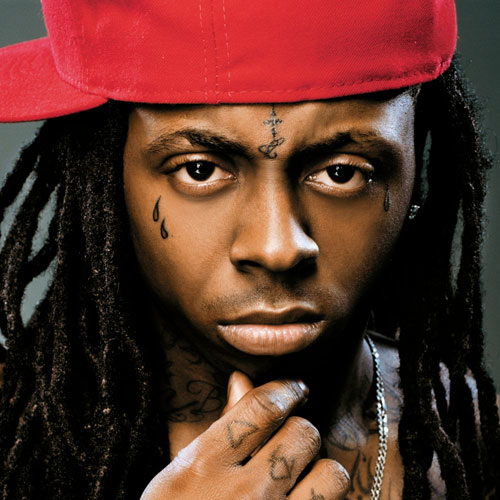“I don’t feel connected to a damn thing that ain’t got nothing to do with me.” Lil Wayne said this along with other equally offensive comments when prompted to speak on the Black Lives Matter movement during an interview in early November. As he spoke, it became clear that he did not support the movement against police brutality and racism because as a wealthy, protected, celebrity black man, he was not currently or consciously experiencing racism, at least not to its full extent.

Rap music is founded on the ideal of being outspoken through song. And yet, as many rappers speak on political issues, they repeatedly dismiss crucial topics as unimportant. Lil Wayne raises the question of why should you speak up on injustices that you do not personally identify with. This is an issue that causes many people to remain ignorant and silent while the oppressed suffer. It is a human trait to be more passionate about things that directly relate to you. However, empathy is one of the most powerful ways to effect change, and with the ability to empathize comes the ability to use your position of power to speak up. Often the voices heard most clearly are the voices of the privileged. If the privileged are speaking in dismissive and unsympathetic ways such as Lil Wayne has, then the message that spreads faster is the one of indifference.

Along with Lil Wayne, rapper A$AP Rocky spoke out about how he feels towards the Black Lives Matter movement as a wealthy black man. “I don’t wanna talk about no fucking Ferguson and shit because I don’t live over there. I live in fucking SoHo and Beverly Hills. I can’t relate,” said Rocky in a 2015 interview. With their blatant disregard for any problems outside themselves, A$AP Rocky and Lil Wayne highlight an issue with both rap culture and privilege.
Rap has transformed from a means of protest to a highly profited capitalist industry. A select few rappers rise to fame and are often removed from whatever situation caused them to feel a need to protest through song. Popular artists produce songs that sell, which regularly includes derogatory slurs and misogynistic phrases. The true artistry and purpose behind rap is lost in the mix of platinum records and offensive lyrics.
Privilege plays a large part in A$AP Rocky and Lil Wayne's justification of their ignorant comments. It causes them to lose perspective on what the world is facing through their sheltered vision. Even in A$AP Rocky's recent attempt to resolve what he said in 2015, he perpetuated the culture of white supremacy and white fragility. “I just get upset, and what I was really trying to say there was, like, yo, I just, I hate when the bandwagon stuff start. I mean, how come, you know, black lives only matter when a police take ’em, when a police officer takes it? And it should be like, black lives, it should matter when a black life take it. You know what I mean? It should always matter. All lives matter!” said Rocky on a radio show in July, 2016.
Rap has transformed from a means of protest to a highly profited capitalist industry. A select few rappers rise to fame and are often removed from whatever situation caused them to feel a need to protest through song. Popular artists produce songs that sell, which regularly includes derogatory slurs and misogynistic phrases. The true artistry and purpose behind rap is lost in the mix of platinum records and offensive lyrics.
Privilege plays a large part in A$AP Rocky and Lil Wayne's justification of their ignorant comments. It causes them to lose perspective on what the world is facing through their sheltered vision. Even in A$AP Rocky's recent attempt to resolve what he said in 2015, he perpetuated the culture of white supremacy and white fragility. “I just get upset, and what I was really trying to say there was, like, yo, I just, I hate when the bandwagon stuff start. I mean, how come, you know, black lives only matter when a police take ’em, when a police officer takes it? And it should be like, black lives, it should matter when a black life take it. You know what I mean? It should always matter. All lives matter!” said Rocky on a radio show in July, 2016.

While there are rappers that use their voices to amplify ignorance, there are also rappers who use their platforms as a way to promote awareness and change. In rapper T.I’s response to Lil Wayne’s comments, he said, “proud to call myself a fan & a friend of Lil Wayne, but if that must end in order to stand up for those who can’t do it themselves...So be it.” His ability to not only recognize the fault in what Lil Wayne said, but to also sacrifice his association with the famous rapper, is an effective and powerful expression of his beliefs.
If someone is perpetuating the normalization of oppression, or not realizing the oppression at all, how do you, as their friend or supporter, respond? Is it okay to go against what you believe to be true just to protect a relationship? Can you continue this relationship knowing that someone is actively contributing to oppression? T.I is valid in his choice to disconnect from Lil Wayne if he does not change the way he interacts with important political topics. Maybe the most significant action is taking the time to evaluate and educate each other and ourselves.
As rappers become more outspoken in their political beliefs, reflection on the industry is needed. Being such a direct outlet for political intervention, rap can be effectively used and abused. It’s important that famous artists are aware of the consequences of their words. Even with freedom of speech, disrespecting the reality of someone's existence is not a matter that can be taken lightly. We need more people to take action as T.I did and begin to question what it means to have unacknowledged privilege.
If someone is perpetuating the normalization of oppression, or not realizing the oppression at all, how do you, as their friend or supporter, respond? Is it okay to go against what you believe to be true just to protect a relationship? Can you continue this relationship knowing that someone is actively contributing to oppression? T.I is valid in his choice to disconnect from Lil Wayne if he does not change the way he interacts with important political topics. Maybe the most significant action is taking the time to evaluate and educate each other and ourselves.
As rappers become more outspoken in their political beliefs, reflection on the industry is needed. Being such a direct outlet for political intervention, rap can be effectively used and abused. It’s important that famous artists are aware of the consequences of their words. Even with freedom of speech, disrespecting the reality of someone's existence is not a matter that can be taken lightly. We need more people to take action as T.I did and begin to question what it means to have unacknowledged privilege.


